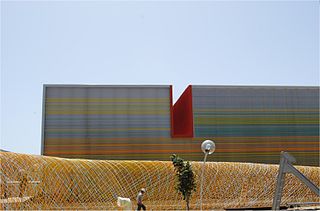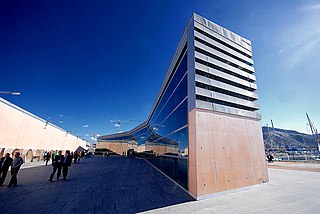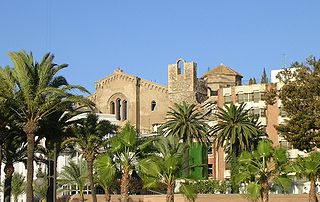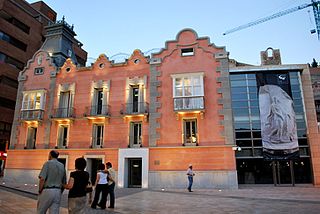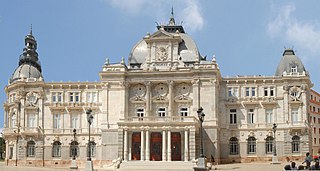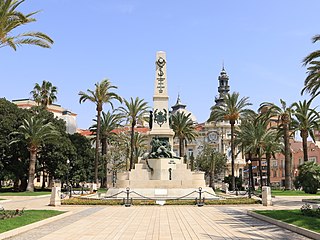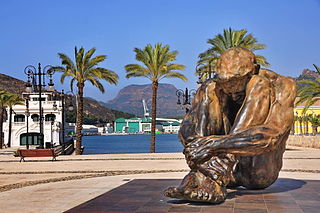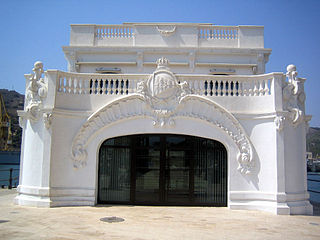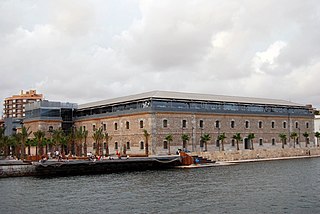Self-guided Sightseeing Tour #1 in Cartagena, Spain
Legend
Guided Free Walking Tours
Book free guided walking tours in Cartagena.
Guided Sightseeing Tours
Book guided sightseeing tours and activities in Cartagena.
Tour Facts
1.9 km
28 m
Experience Cartagena in Spain in a whole new way with our free self-guided sightseeing tour. This site not only offers you practical information and insider tips, but also a rich variety of activities and sights you shouldn't miss. Whether you love art and culture, want to explore historical sites or simply want to experience the vibrant atmosphere of a lively city - you'll find everything you need for your personal adventure here.
Activities in CartagenaIndividual Sights in CartagenaSight 1: Auditorio y Palacio de Congresos El Batel
The El Batel auditorium and conference centre is a large cultural infrastructure located in the port of the Spanish city of Cartagena, next to the National Museum of Underwater Archaeology (ARQUA), whose works began in 2004 and opened its doors at the end of 2011.
Sight 2: Museo Nacional de Arqueología Subacuática
The National Museum of Subaquatic Archaeology is a underwater archaeology museum in Cartagena (Murcia), Spain. It owns a large collection of pieces recovered from shipwrecks that begins in the Phoenician period, and arrives until the 19th century. It is one of the National Museums of Spain and it is attached to the Ministry of Culture.
Sight 3: Catedral de Santa María
The Cathedral of Cartagena in Spain, or the Cathedral of Santa María la Vieja, was a cathedral of the Diocese of Cartagena, located on the hill of La Concepción in the old town of Cartagena. It has been in ruins since 1939, when it was destroyed when Cartagena was shelled in the Spanish Civil War by Nationalist forces.
Sight 4: Museo del Teatro Romano
The Museum of the Roman Theatre of Cartagena is a work of the architect Rafael Moneo inaugurated on July 11, 2008 and is dedicated to the project of excavation, restoration and enhancement of the Roman theatre of Cartagena in Cartagena, Spain.
Wikipedia: Museo del Teatro Romano de Cartagena (ES), Website
Sight 5: Palacio Consistorial de Cartagena
The Cartagena City Hall, also known as the Cartagena City Hall, is one of the main modernist buildings in the city of Cartagena built between 1900 and 1907, the work of the Valladolid architect Tomás Rico Valarino.
Sight 6: Monument to the Heroes of Cavite and Santiago de Cuba
The Monument to the Heroes of Cavite and Santiago de Cuba is an instance of public art and war memorial in Cartagena, Spain. It commemorates the role of the naval squadrons commanded by Patricio Montojo and Pascual Cervera during the 1898 Spanish–American War.
Wikipedia: Monument to the Heroes of Cavite and Santiago de Cuba (EN)
Sight 7: El Zulo
The zulo is a bronze sculpture by Víctor Ochoa that has been on display since 2009 on the esplanade of the port of the Spanish city of Cartagena, in tribute to the victims of terrorism. The work, in which the art historian Ana María Preckler (2003) appreciated a "Michelangelesque workmanship", is 5 meters high and weighs 2.5 tons, and represents a naked man sitting in an attitude of reflection, with his head down and hugging his legs, almost in a fetal position.
Sight 8: Antiguo Club de Regatas
The old Regatta Club was the headquarters of the Real Club de Regatas de Cartagena. It was built by the architect Mario Spottorno in 1912, in the port of the Spanish city of Cartagena. Since 1988 it has been listed as an Asset of Cultural Interest.
Sight 9: Museo Naval
The Cartagena Naval Museum is a military museum near the city port of Cartagena, Spain. It presents exhibitions related to naval construction. It is a subsidiary of the Naval Museum of Madrid.
Share
Disclaimer Please be aware of your surroundings and do not enter private property. We are not liable for any damages that occur during the tours.
GPX-Download For navigation apps and GPS devices you can download the tour as a GPX file.
